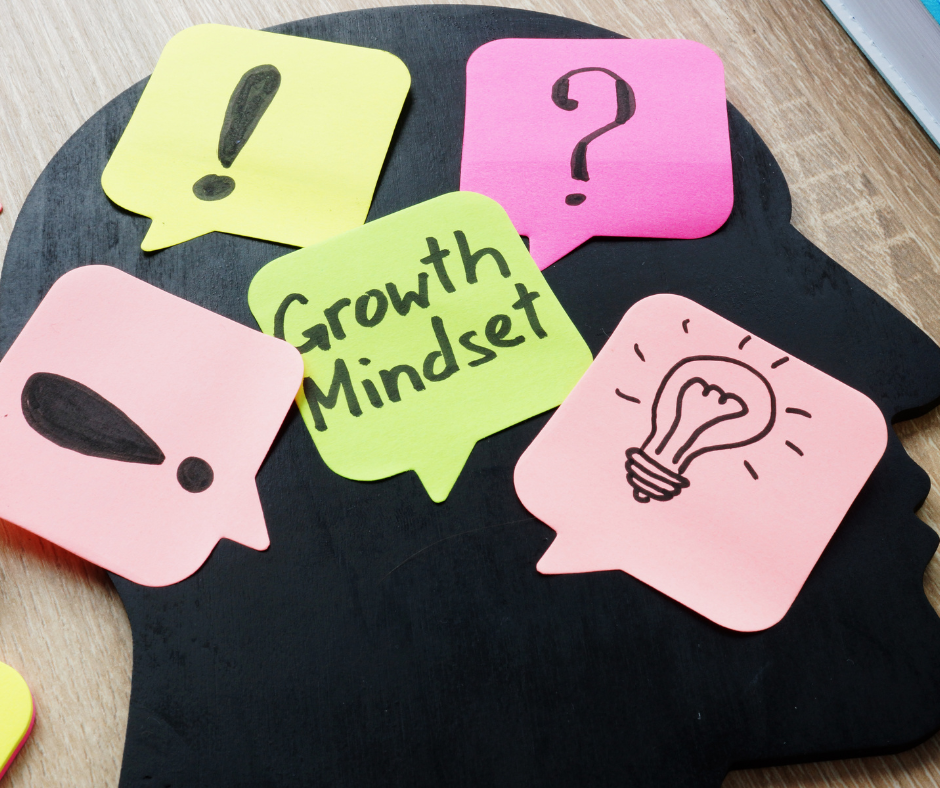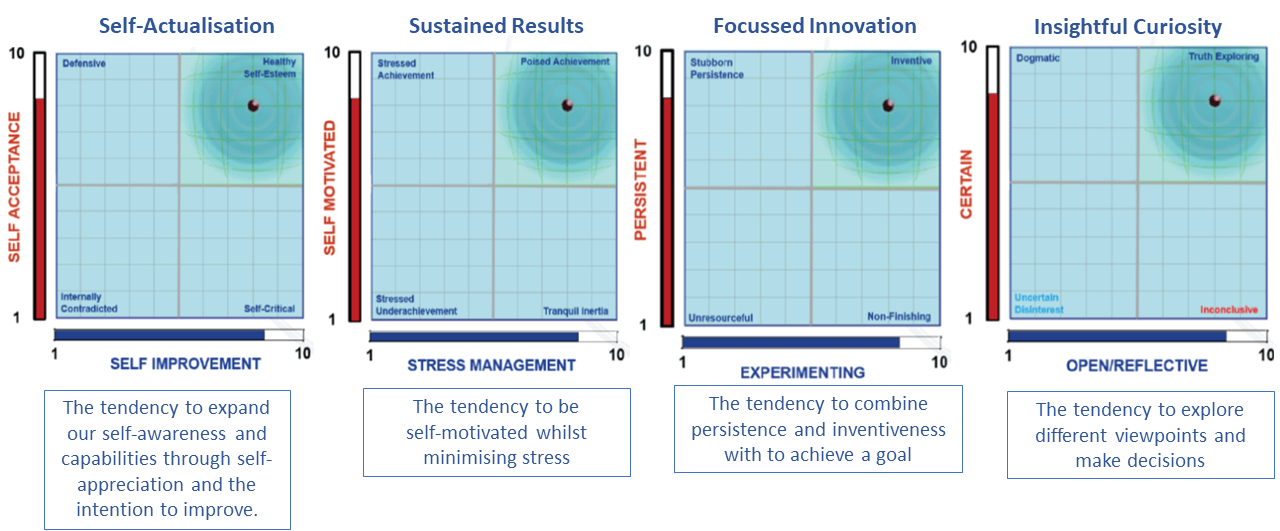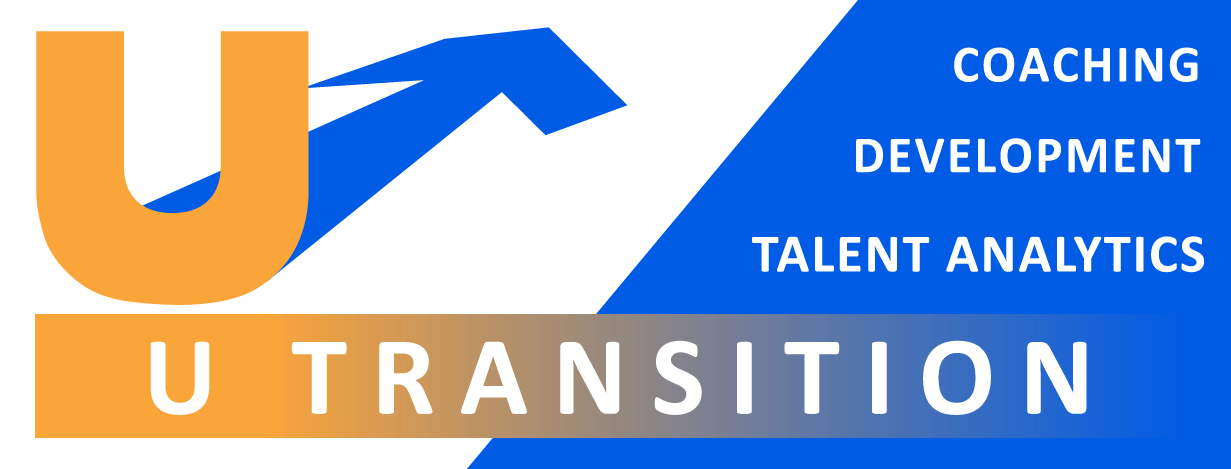
 Embracing a growth mindset
Embracing a growth mindset
The belief that intelligence and abilities can be developed through dedication and hard work, gives a strategic advantage in today’s fast-paced world.
Coined by psychologist Dr. Carole Dweck in her research with children, this mindset fosters resilience, persistence, and adaptability.
Dweck’s research contrasts a growth mindset with a fixed mindset, where individuals perceive their qualities as unchangeable. Research shows that adopting a growth mindset leads to better academic performance and a positive outlook, making it essential for personal and professional success in the competitive modern landscape.
In the context of business, embracing a growth mindset offers a significant advantage. Businesses that foster a culture of continuous learning and development among their employees tend to be more innovative, adaptable, and resilient in the face of challenges.
Employees with a growth mindset are more likely to view setbacks as opportunities to learn and improve, leading to increased problem-solving abilities and creativity. A growth mindset also promotes a collaborative environment where employees are open to feedback and willing to experiment, driving organisational growth and success.
In a rapidly changing business landscape, cultivating a growth mindset not only enhances individual performance but also contributes to the overall agility and competitiveness of the entire organisation.
The Power of Yet
The “power of yet” is a core concept in the growth mindset philosophy.
Instead of saying, “I can’t do this,” individuals with a growth mindset say, “I can’t do this yet.”
The addition of the word “yet” transforms limitations into opportunities, signifying a belief in the ability to improve over time.
This shift opens doors to continuous improvement and limitless possibilities, reframing failures as temporary obstacles on the path to mastery.
Some of the real benefits are summarised here
- Enhanced Innovation and Problem-Solving: A growth mindset encourages employees to view challenges as opportunities to innovate. When individuals believe in their ability to develop skills, they approach problems with creativity and perseverance. Innovative thinking can lead to the development of ground breaking products, services, and processes, giving businesses a competitive edge in the market.
- Cultivating a Passion for Lifelong Learning: A growth mindset fosters a passion for lifelong learning. Individuals who believe in their ability to develop skills are more likely to seek out new challenges and opportunities. Whether it’s acquiring technical expertise, delving into a new field, or enhancing interpersonal skills, a growth mindset nurtures a hunger for knowledge and personal development. This continuous learning not only enriches their lives but also makes them adaptable in a rapidly changing world.
- Increased Employee Engagement and Productivity: Employees working in a growth mindset environment feel valued and empowered. They are more engaged in their work, leading to increased productivity and higher quality output. When individuals are encouraged to learn from failures and see setbacks as temporary, they remain motivated, leading to a more committed and productive workforce.
- Building Resilience, Confidence, and Collaboration: With a growth mindset, resilience becomes a natural trait. A growth mindset equips employees with the resilience to bounce back from failures and setbacks. Setbacks are seen as temporary roadblocks, not insurmountable barriers. This resilience, in turn, builds confidence, enabling employees to approach tasks with self-assurance and collaboration flourishes. People are more inclined to share knowledge, support one another, and collectively strive for excellence, creating a positive and empowering community. When employees perceive challenges as opportunities to learn and grow, stress levels decrease, and overall well-being improves. This positive outlook contributes to a healthier work environment, reducing turnover rates and ensuring a stable, motivated workforce
- Brand Image and Customer Satisfaction: A company with a growth mindset is often perceived as dynamic, innovative, and customer-focused. Such positive attributes enhance the brand’s image, attracting customers who value progressive and adaptable businesses. Satisfied customers, in turn, lead to increased brand loyalty and positive word-of-mouth, further driving business growth.
- Enhanced Decision-Making: Employees with a growth mindset approach decision-making with a positive attitude. They are more open to exploring diverse solutions, leading to well-informed decisions. This adaptability in decision-making allows businesses to navigate complex challenges effectively, ensuring sustainable growth and success. Watch this short video with Carole Dweck talking about growth mindset in organisations
The Paradoxes of a Growth Mindset
Developing a Growth Mindset requires a balance across a range of seemingly opposite behaviours or Paradoxes. Harrison Assessments uses Paradox Technology to explore an individual’s preferences and behaviours, identifying both potential strengths and factors that could hinder their success. When you have a strength in both paradoxical traits, you have what is known as balanced versatility, and this is where the magic happens.
4 of Harrison’s 12 paradoxes, shown below, are significant for developing a growth mindset:

If you would like to explore how you measure up against the Growth Mindset Paradoxes click here to book a call
What could embracing the power of “yet” help you achieve in your business?
Embracing Challenges and Learning from Failures
Dweck’s research underscores the importance of embracing challenges as opportunities for growth. People with a growth mindset see challenges not as threats but as chances to expand their skills and knowledge. Furthermore, they approach failures as valuable learning experiences, analysing what went wrong and using that knowledge to improve. This ability to learn from failures and setbacks fuels their resilience and propels them forward in the face of adversity.
A fixed mindset is about validation. A growth mindset is about development.
In a business context, this means employees are more adaptable to change, readily acquiring new skills and knowledge to keep up with industry advancements. This adaptability is crucial in today’s fast-paced VUCA market, where businesses need to evolve and innovate rapidly to stay relevant.
This is the key to purposefulness, productivity and profit.
Points to ponder:
- How are you fostering a culture of growth mindset in your work place?
- What opportunities are there for the “power of yet” for you and your team?
- How would your managers measure on the Paradoxes of Growth Mindset?
